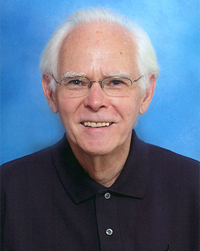
David Mayhew, Sterling Professor Emeritus of Political Science, who is widely considered one of the leading scholars on the American Congress, gave a series of three lectures in September on “The Imprint of Congress” for the Henry L. Stimson Lectures on World Affairs. They focused on three themes: “How to Think About It,” “The History,” and “An Assessment.”
Mayhew is publishing a book with the Yale University Press titled The Imprint of Congress this year about the legislature’s influence on American society and life, and he unveiled the contents of this work during his Stimson Lectures.
“I’m not interested in the questions: Is Congress Good? Do Americans like Congress? Has Congress been democratic enough?…I want to look at the results of Congressional activity,” he explained.
Professor Mayhew dismissed the literature that uses words such as “stalemate” and “gridlock” to describe Congress. He sees these critiques as headline-grabbers instead of productive ways to talk about government.
“There are not very many political institutions that have operated with reasonable success for so long,” he pointed out. “When was the last time you went to a rally where someone wanted to get rid of Congress?”
And Professor Mayhew left no doubt in his audience’s mind that Congress is at the center of American political life. His lectures revolved around 13 “impulses” of Congress throughout history, from the promotion of Western expansion to environmental regulations.
He methodically analyzed each of these 13 impulses and explained why Congress – not the President or the judiciary – played the primary role in pushing them forward.
“It’s easy for Presidents to sign things. Overwhelmingly, Congress serves up those things,” he stated.
The members of the audience seemed to enjoy Professor Mayhew’s insights and left the Stimson Lectures with an expert’s knowledge of Congress. They learned that the filibuster was made popular by southern Senators hoping to stop civil rights legislation; that Congress consistently disapproved of United States colonial acquisitions; and that Congress has tended toward an isolationist foreign policy throughout its history.
But more than anything, Professor Mayhew convinced people that the American legislature is more efficient than other scholars make it out to be.
“Congress is not that bad,” he concluded with a grin.
